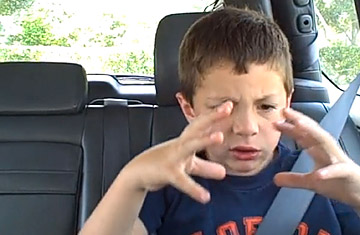
David After Dentist
(7 of 8)
YouTube can't just step in and replace TV, because it's a fundamentally different medium. If it does, the world is going to look very different. YouTube is an inverted, looking-glass version of the media landscape: brands that are dominant everywhere else play like amateurs on it, and amateurs play like multinational conglomerates. The Khan Academy is an education channel on YouTube founded by a former hedge-fund manager named Salman Khan, who makes almost all its videos himself. It has 255,000 subscribers; that's more than the channels of the entire Ivy League combined. The Cartoon Network's YouTube channel has 53,000 subscribers; compare that with Fred, a channel run by an 18-year-old from Nebraska named Lucas Cruikshank, which has 2.4 million. And so on.
That's not to say that a big institution couldn't do what Khan did. It just wouldn't, as Mehrotra is the first to admit: "Imagine [Khan] walking into a studio and saying, 'I want to start a show about math. All I want to do is solve problems. I'm never going to show my face. I'm going to solve every problem in your standard algebra book, then I'll do it in chemistry and so on.' He'd get laughed out of the room." Brands and celebrities occasionally make it out of YouTube--Justin Bieber being the obvious example--but it's much rarer for them to successfully cross over the other way.
This isn't lost on Kyncl, by the way, who likes to matchmake his professional partners with YouTube natives who can show them the ropes. But he has his work cut out for him. Run your eye down the list of the most-subscribed channels on YouTube and you have to go down 14 places before you get to a name that a person on the street would recognize (that name is Rihanna). Something about the air on Planet YouTube is toxic to the professional, corporate, branded way of doing things. It's not entirely clear whether professionals can breathe the air in what has, until now, been an amateur's paradise.
The danger for YouTube is that by trying to beat TV, it will become TV, and in so doing it will lose its weird, fluky, anarchic heart, which is what makes it different from, and in some ways better than, TV. But more likely, YouTube's new strategy will end up unleashing the billion-eyed beast, rather than taming it. It will undoubtedly grow YouTube's audience, but there's no reason to think it will make our tastes less weird and random. If the Young Turks are the future of broadcast news, advertisers may just have to make their peace with that.
